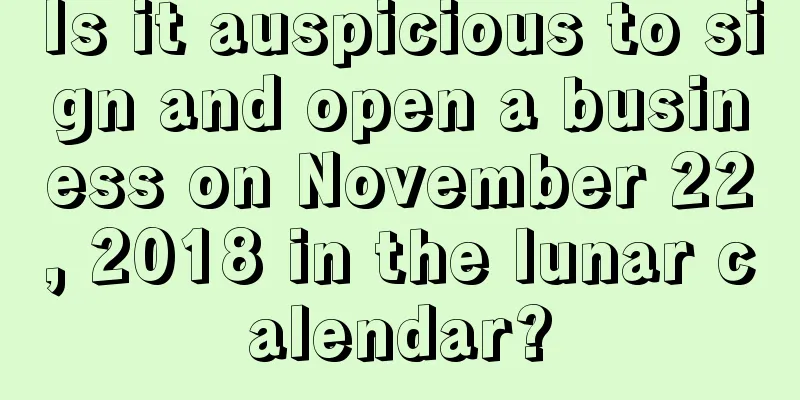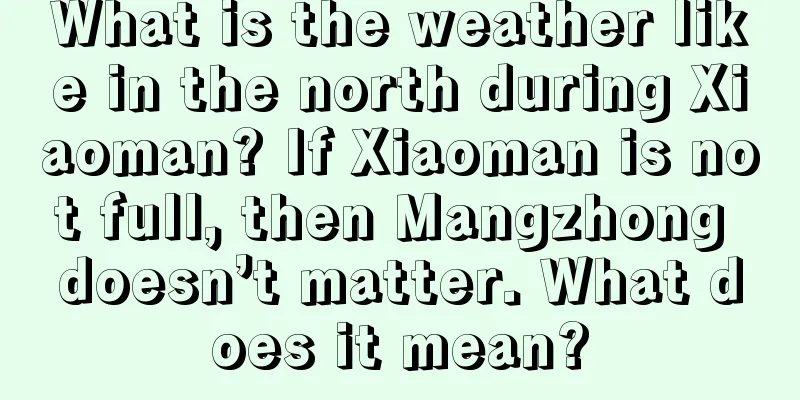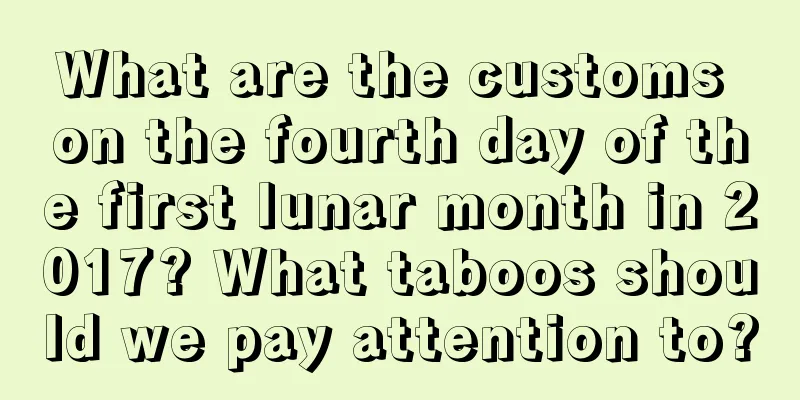What are the customs of the Minor Cold solar term? What’s the significance of Xiaohan?

Minor Cold is the 23rd of the 24 solar terms, which means the arrival of winter. So what are the customs of the Minor Cold solar term? What’s the significance of Xiaohan? Let’s take a look at the following content!What are the customs of the Minor Cold solar term?1. Visit plum blossomsAt this time, the wintersweets are in bloom and the red plums are in bud. Choose an ideal scenic spot with plum blossoms and appreciate them carefully. You will smell the elegant fragrance and your mind will be refreshed and invigorated. 2. Ice play In the northern provinces of my country, the weather is extremely cold after winter, and the ice period is extremely long, often starting from November until April of the following year. Between spring and winter, the river surface is frozen thickly and people have to use sleds to travel on the ice. The sled is either pulled by a horse, led by a dog, or pushed forward by the rider holding a wooden pole and rowing like a boat. In areas where the ice is particularly thick, there are usually ice beds for pedestrians to play on. There are also people who race on the ice wearing ice skates, which was called ice play in ancient times. The History of Song Dynasty records: "According to the tradition, they stayed overnight in the fasting garden and played with ice." The Imperial Records of the Past Records of Japan records: "To the west of Xihua Gate is the West Garden, which is named West Garden Gate. At the entrance is the Taiye Pond. In winter, people would play with ice and practice hard work and reward each other." The Miscellaneous Notes of Yiqing Pavilion records the old customs of Peking: "In the Ming Dynasty, there was a enthusiast at Jishuitan. He connected more than ten beds, brought a large basket of wine utensils, spread them on the ice, and drank from the ice. He was also very happy." 3. La Festival "Xiao Han" is the solar term in the twelfth lunar month. As the ancients would hold the La Festival in December to worship all gods, the twelfth month when the La Festival was held was called the La Yue. The wood meaning of La is "connection", which means the connection between the old and the new. La Festival is one of my country's ancient sacrificial customs, which was formed as early as the pre-Qin period. Han Yingjie's "Customs and Practice". "La Festival" says: "La means hunting, which means hunting animals in the fields to sacrifice to their ancestors. Some say that La means connection, the connection between the new and the old, so a grand sacrifice is held to repay the merits." "La Festival" has three meanings. The first is to show that one has not forgotten the origin of himself and his family, and to express respect and remembrance for his ancestors. The second is to offer sacrifices to the gods and thank them for their contributions to agriculture over the past year. Third, people have worked hard all year round, and now is the time to rest from farming, so they can take this opportunity to have some fun. Since the Zhou Dynasty, the custom of "La Festival" has been passed down from generation to generation, from the emperor, princes to ordinary people, everyone is no exception. 4. Eat Laba Congee Another important folk custom during the Minor Cold solar term is eating "Laba porridge". According to ancient books, Laba porridge is cooked with yellow rice, white rice, glutinous rice, millet, peeled date paste, etc., and then dyed with red peach kernels, almonds, melon seeds, peanuts, etc. These foods are sweet and warm, and have the effects of regulating the spleen and stomach, tonifying the middle and replenishing Qi, nourishing Qi and blood, dispelling cold and strengthening the body, and promoting fluid production and quenching thirst. 5. Eat glutinous rice There is a Guangdong proverb that goes, "It's cold even without wind during the Lesser Cold and the Greater Cold." It is a traditional custom to eat glutinous rice in the morning of the Lesser Cold and the Greater Cold to ward off the cold. According to folk tradition, glutinous rice has a higher sugar content than rice. Eating it will make the whole body feel warm and help drive away the cold. According to traditional Chinese medicine theory, glutinous rice has the effect of nourishing the middle and replenishing qi, and it is most suitable to eat glutinous rice in cold seasons. What’s the significance of Xiaohan?Keep warm in daily lifeMinor Cold is one of the coldest of the 24 solar terms in a year. At this time, you must pay attention to keeping warm in your daily life. "Traditional Chinese medicine believes that 'coldness causes stagnation and coldness causes contraction.' When the weather is cold, joint pain, cervical spondylosis and even cardiovascular and cerebrovascular diseases are more likely to occur." Keeping warm is the top priority, especially for areas that are prone to cold, such as the shoulders, neck, and feet. For the elderly, in addition to keeping warm, they should also pay attention to ventilation and closely prevent the occurrence of cardiovascular and cerebrovascular diseases. |
<<: How is the Xiaohan day? Are there any other taboos?
>>: Is it okay to open on January 5, 2021, tomorrow? Is the next solar term after Xiaohan the Dahan?
Recommend
Is the fate of a boy born on October 12 of the lunar calendar in 2021 good or bad, and what is his personality like?
The eight characters can reveal a person's inn...
What is the lunar calendar for May 19th, 2021? Is it suitable for opening a business?
Farmers have few idle months, and people are doubl...
What is the eleventh month of the lunar calendar called? Any other nicknames?
What is the eleventh month of the lunar calendar c...
Is it appropriate to start construction and renovation on August 21, 2022, the Year of the Tiger? Is it a good day for renovation?
Is it appropriate to start construction and renova...
What traditional festival is on the 27th day of the twelfth lunar month in 2019? What is its meaning?
Introduction: The twelfth lunar month is an import...
Is it suitable to get married on October 29th of the lunar calendar in 2020?
The lunar calendar is the traditional Chinese cal...
Is it good for a baby boy born on June 29, 2020? How many months does it take to get pregnant if you are born in the sixth month of the lunar calendar?
Introduction: Children born in different months ha...
What are the dietary customs during Laba Festival?
There are many traditional festivals in the twelft...
Is it suitable to move house and set up beds on the tenth day of the eighth lunar month in 2019, the day of Bailu? Will the weather still be hot after Bailu?
Introduction: Generally, you need to choose an aus...
Is the first day of the third lunar month in 2018 a suitable time for engagement and marriage?
The arrival of the third month of the lunar calen...
Can we visit graves on Halloween in 2021? Is Halloween a Western ghost festival? What are the legends of Halloween?
Halloween is a traditional Western festival. Want ...
Is the second day of the first lunar month in 2019 an auspicious day?
The second day of the first lunar month is the day...
During the Qingming Festival in 2020 - which day on April 4th and 6th is suitable for burning incense and praying?
Introduction: You need to choose an auspicious day...
What are the customs of Lesser Heat? What should we pay attention to in maintaining health during the Lesser Heat?
During the Lesser Heat season, the weather becomes...
Is the Double Ninth Festival in 2019 an auspicious day? What is the hexagram for the Double Ninth Festival today?
Introduction: Different days have good and bad luc...









